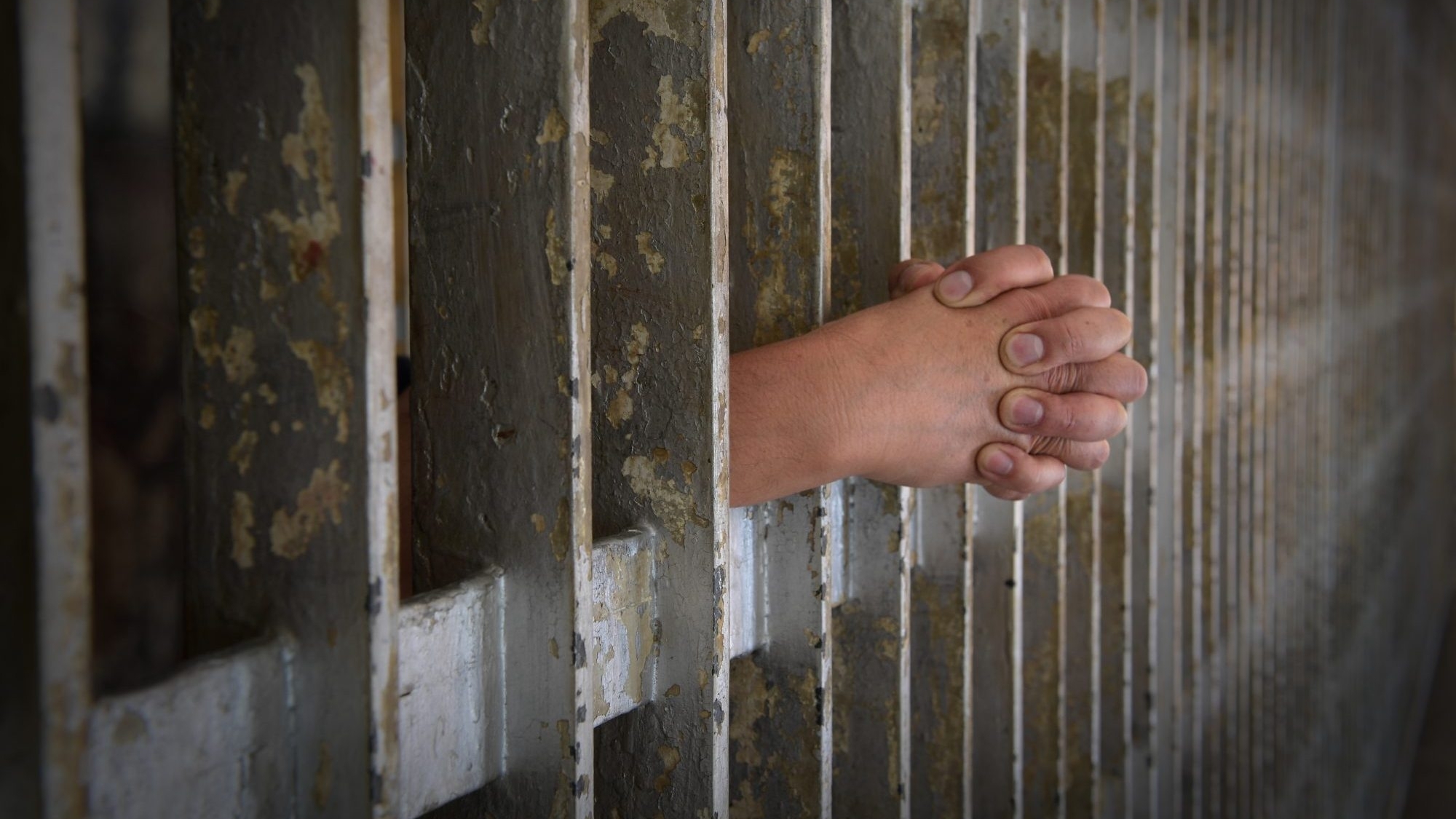After months of a reduction in parole hearings for Alabama’s incarcerated, the state Bureau of Pardons and Paroles is ramping up the numbers of those hearings.
In a response to ARP’s questions Monday about how those hearings are set, Bureau spokesman Terry Abbott said that the agency has a target goal of 540 hearings during the month of March.
That goal is much higher than the 150 hearings that were scheduled for January 2020, and nearly 200 more than the 343 hearings scheduled for February.
The increase in parole hearings comes after Bureau director Charlie Graddick received pressure recently from state legislators and outside groups concerned over the slowdown in those hearings, but Abbott in a message to APR on Tuesday said that pressure was not the cause of the increase.
“The increase in hearings was not the result of legislative or ACLU criticism. Under the law, cases have to be docketed 45 days before the hearings, so information on the number of hearings and which inmates will have their cases heard is published on our website 45 days in advance,” Abbott’s message reads. “The number of hearings has been increasing steadily. All the hearings docketed for February were scheduled in January or before, long before the recent criticism from the Legislature and the ACLU.”
At a budget presentation on Jan. 23 Graddick was grilled by lawmakers on the bureau’s decline in paroles. Asked how many paroles had been granted since he became director, Graddick said that he was unsure, and that parole decisions are made by the board, not by him.
“The parole board follows the law and then the three of them make their judgment as to whether or not they’re going to be a risk to the community. And I guess we’ve just got too many violent people in jail,” Graddick said during the meeting, according to Al.com’s Mike Cason.
Cason also reported that Graddick spoke with reporters after the meeting about why he thinks fewer people were being paroled.
“I had a man who’s been in this business a long time tell me about a month ago that they’ve taken all of the low-hanging fruit out of the prisons,” Graddick said, according to AL.com. “That means that we don’t have people there anymore that really qualify. They just don’t.”
The ACLU of Alabama recently made two records requests to the bureau to find out why so many fewer incarcerated people were getting hearings, asking which policies and procedures were being used to schedule those hearings.
Beth Shelburne, and investigative reporter for ACLU of Alabama’s Campaign for Smart Justice, in a statement expressed concern that the requests weren’t being responded to with proper responses.
“We’ve asked to see the specific policy or procedure that guides the scheduling of parole hearings. We’ve also asked to interview any supervisor within the agency who can walk us through the process, but I was told today that my interview request would not be granted,” Shelburne said in the statement. “We’ve submitted a new request, renewing our commitment to hold this state agency accountable. The Governor and the Bureau of Pardons and Paroles must follow through on transparency and answer our questions about this important policy.”
Graddick, through spokesman Terry Abbott, declined APR’s interview request Monday.
“Judge Graddick hasn’t been doing one-on-one interviews because he is focused on directing the ongoing improvements in the agency,” Abbott wrote to APR.
Graddick was appointed director on Sept. 1, 2019, by Gov. Kay Ivey, and quickly suspended all parole hearings, saying that the victim notice process wasn’t being followed properly.
When hearings resumed in November, the number of people getting them dropped dramatically. Just 17 people were granted parole during November and December 2019, according to ACLU of Alabama’s report. Ninety-two percent of eligible parolees were not granted release during those months.
Abbott in a message to APR on Monday said that the Bureau’s Board Operations Division is tasked with setting incarcerated people for hearings.
“Preparation specifically includes a face to face interview and risk assessment of the inmate by an Institutional Parole Officer. Completed files with all compiled records/reports that have been located are transferred onto dockets based on which cases have been completely worked at the time a docket is set,” Abbott wrote in his response.
“The board’s current practice is to hear cases on Tuesdays, Wednesdays, and Thursdays of each week. Hearing notices for officials and victims are simultaneously prepared and sent as required by law when dockets are set,” Abbott said. “The overall process thus consists generally of a target number of eligible cases coming before the board in sequential order grouped by inmate eligibility date but with some variation due to delays most often caused by location complications encountered for victim cases.”
Abbott described a process in which all the work to prepare a case is done first, then the cases are set on dockets to be heard by the board.
Lyn Head, former Tuscaloosa County district attorney who resigned as chair of the Board of Pardons and Paroles in September 2019, told APR by phone on Monday that it was her understanding that during her time on the board and before, the cases that were eligible for a hearing were docketed, and “that they were prepared and gotten ready based on their settings on the docket.”
“Because the time-consuming thing between the setting and the case and the hearing of the case is notices,” Head said, referring to notices to victims, family members and parties required by law to be notified of an upcoming parole hearing. “Those statutory notices have to be taken care of.”
Head said that those notices were going out as required by law when she was on the board.
“My prayer is that this will be resolved, because there are 25,000 people – and I use the word people very carefully. I’m talking about people who are incarcerated – who’ve got to feel desperate and hopeless at this point,” Head said. “They’ve been doing all the right things and their cases aren’t even coming up in a timely manner.”
The reduction in paroles came after the U.S. Department of Justice in April released a report that found there was reason to believe Alabama was violating prisoners’ Constitutional rights to protection from physical violence and sexual assault by housing them in overcrowded, understaffed and unsafe facilities.
At least 14 incarcerated men died by homicide in Alabama in 2019, which was more than twice as many as were killed during the entire ten-year period between 1999 and 2009. Alabama’s prison homicide rate is almost nine times the national average for state prisons, according to U.S. Bureau of Justice Statistics.
At least 28 people died as a result from either homicide, drug overdose or suicide in state prisons in 2019.
State lawmakers passed sentencing reforms in 2013 and 2015, which resulted in a decrease of inmate population from about 200 percent of capacity to around 160 percent.
Between 2013 and 2018 Alabama’s prison population dropped from 26,293 to 20,618 but the reductions changed course in 2019.
ADOC data that shows that in April 2019 the state’s in-custody prison population was greater than the previous year by almost 300 inmates, which was the first time that’s happened since February 2013. In June, the ADOC recorded 639 more inmates than the state held in custody the previous June.
Graddick in an op-ed published by APR on Dec. 4, 2019, said the bureau isn’t responsible for alleviating prison overcrowding.
“It is not the Board’s duty, role, or responsibility by law or otherwise, nor the Director’s, to alleviate prison overcrowding,” Graddick wrote.
Sen. Cam Ward, R-Alabaster, said during the budget hearing on Jan. 23 that the state was under threat of a federal takeover of its prison system if fixes aren’t made.
Ward also decried the bureau’s practice of publicly releasing information on a potential parolee’s past crimes, something that began after Graddick’s appointment.
“The Alabama Board of Pardons and Paroles will hold 34 parole hearings this week, including hearings for 22 violent offenders, among them 6 murderers, 1 sex offender, 2 convicted of attempted murder, 1 for manslaughter and 5 for robbery #crime #safety #victims,” the Bureau tweeted on Monday.
Over 11 tweets on Feb. 23 the agency commented on those turned down for parole that day, noting each person’s criminal history and using hashtags including #crimes, #prison, #drugs and #victims.
Head said that there are “tens of thousands” of stories about formerly incarcerated people who are living productive lives outside of prison.
“At the beginning of 2019 there were 69,000 people who were being supervised by the agency,” Head said. “And those people were being successfully supervised…We don’t hear about those.”
“I think that pressure is the only thing that’s going to make this right,” Head said, referring to those lawmakers pointed questions to Graddick at last week’s budget presentation. “Because it doesn’t appear as though anybody is thinking about those people as people.”


















































